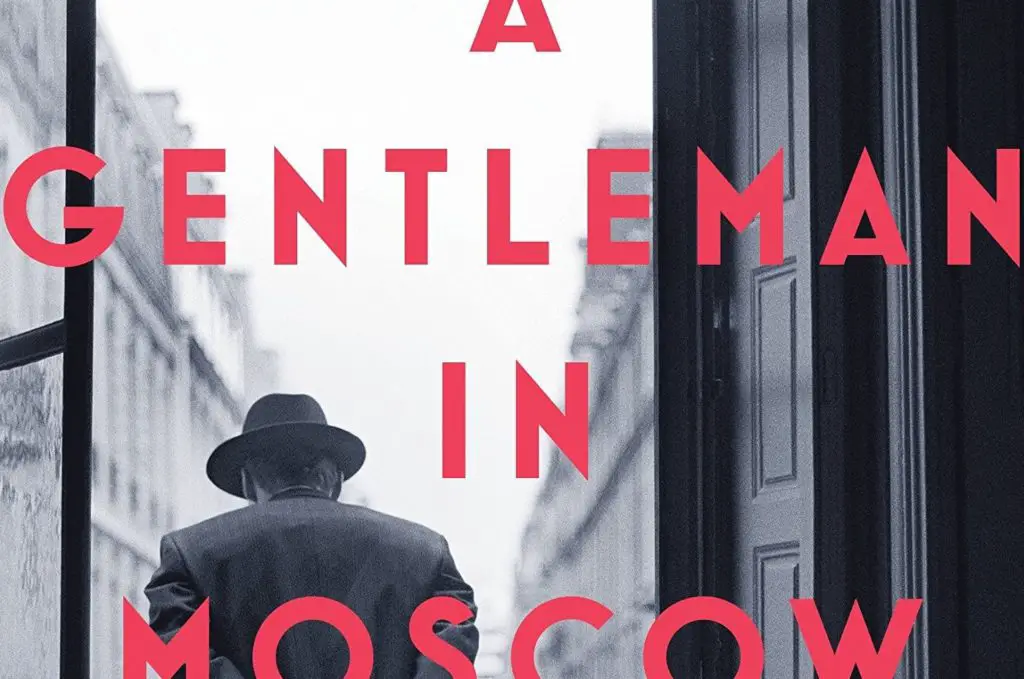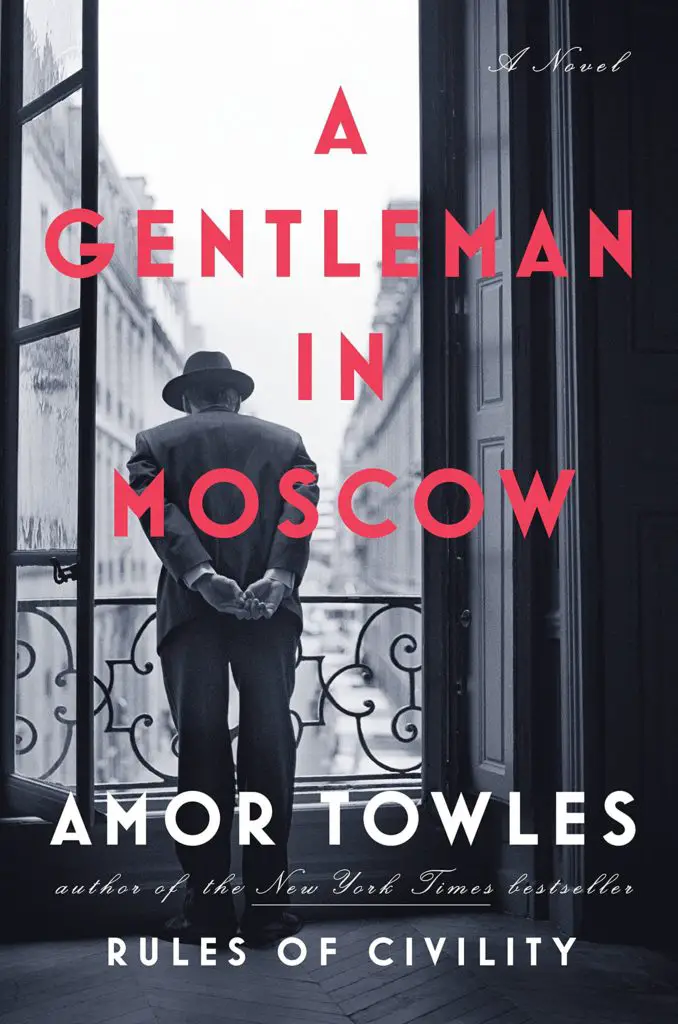
We did not want this book to end. Does that count as a review?
A Gentleman in Moscow by Amor Towles is a humorous, philosophical, front row seat to life in Russia in the early years of Communist rule.
In 1922 wealthy Count Alexander Ilyich Rostov is placed under house arrest in the famed Metropol Hotel for his sins for being a Former Person by the ruling Bolsheviks. This genteel man, who has been living in a suite of well-appointed rooms at the hotel, is moved upstairs to a single room—or so his captors think. The Count perseveres. He lives an absorbing, adventure-filled existence, even when he is forced to wait tables, play hide and seek with a young girl, or confront communism. He’s an Eloise in an elegant suit.
 The story unfolds so wonderfully that we don’t want to give away more of the plot. With more than 7,200 reviews and a 4.7/5.0 rating on Amazon and 11,529 Reviews on Goodreads, A Gentleman in Moscow provides an example of how to retain one’s integrity in a time of great upheaval. Author Amor Towles magnificently conjures the grandeur of the Russian hotel and the vibrancy of the characters that call it home.
The story unfolds so wonderfully that we don’t want to give away more of the plot. With more than 7,200 reviews and a 4.7/5.0 rating on Amazon and 11,529 Reviews on Goodreads, A Gentleman in Moscow provides an example of how to retain one’s integrity in a time of great upheaval. Author Amor Towles magnificently conjures the grandeur of the Russian hotel and the vibrancy of the characters that call it home.
From the New York Times September, 2016, review
Towles is a craftsman. What saves the book is the gorgeous sleight of hand that draws it to a satisfying end, and the way he chooses themes that run deeper than mere sociopolitical commentary: parental duty, friendship, romance, the call of home. Human beings, after all, “deserve not only our consideration but our reconsideration” — even those from the leisured class. Who will save Rostov from the intrusions of the state if not the seamstresses, chefs, bartenders and doormen? In the end, Towles’s greatest narrative effect is not the moments of wonder and synchronicity but the generous transformation of these peripheral workers, over the course of decades, into confidants, equals and, finally, friends. With them around, a life sentence in these gilded halls might make Rostov the luckiest man in Russia. (Read more)
I wanted to savour this one, word for word. Towles bestows on us a language to be treasured; a story to be remembered.
This was a remarkably enchanting narrative with a charming character. A gentleman, Rostov, has been put under hotel arrest. For the next several years, as he serves his time, relationships are cultivated from employees to guests to the visitors he receives and to a young girl whom he becomes a guardian for.
Very descriptive – I tasted almost every meal he ate – from the crisp and tartness of an apple; to the bitterness of his coffee. This is a man who truly separated himself from others in appreciating the simple things in life. A man who was duly present, authentic and honourable.
This is a story that should be read with a good bottle of brandy or simply with the purist adoration for a storyteller who can transcend time and magically entrance us. Bravo, Towles. Bravo. I bequeath a 5 star.
Vyshinsky: Why did you write the poem?
Rostov: It demanded to be written. I simply happened to be sitting at the particular desk on the particular morning when it chose to make its demands.
Vyshinsky: And where was that exactly?
Rostov: In the south parlor at Idlehour.
Vyshinsky: Idlehour?
Rostov: The Rostov estate in Nizhny Novgorod.
Vyshinksy: Ah, yes. Of course. How apt. But let us return our attention to your poem. Coming as it did–in the more subdued years after the failed revolt of 1905–many considered it a call to action. Would you agree with that assessment?
Rostov: All poetry is a call to action.
* * *
